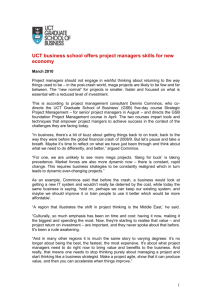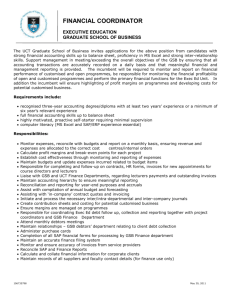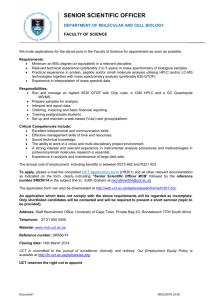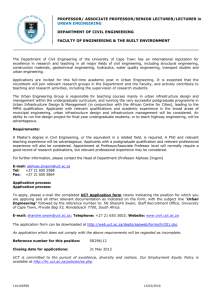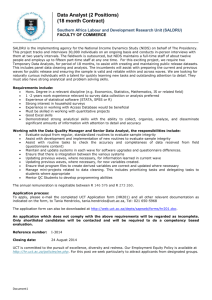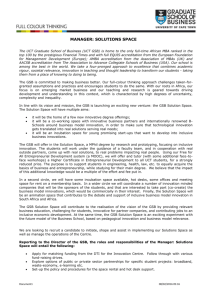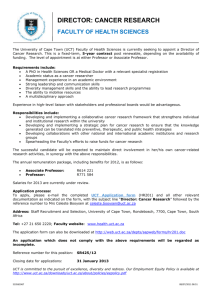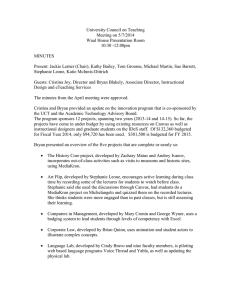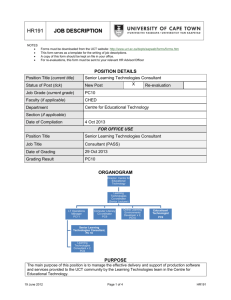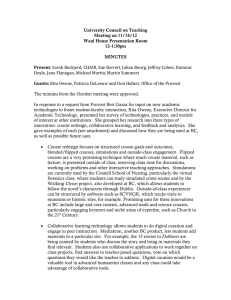Read More - Graduate School of Business
advertisement
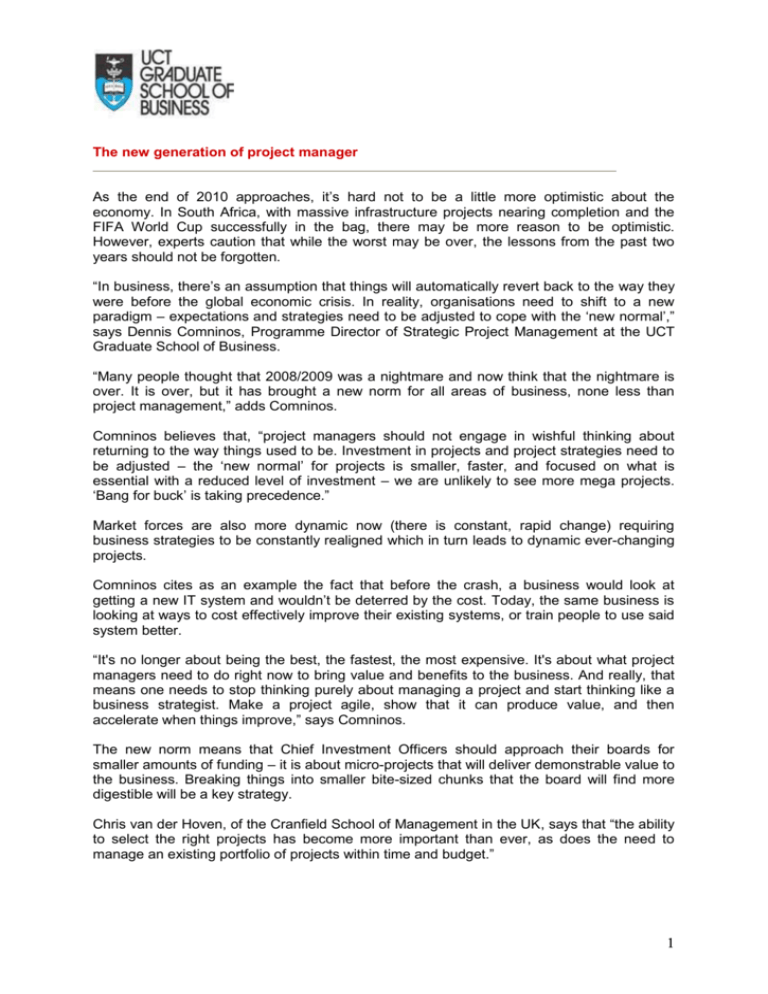
The new generation of project manager As the end of 2010 approaches, it’s hard not to be a little more optimistic about the economy. In South Africa, with massive infrastructure projects nearing completion and the FIFA World Cup successfully in the bag, there may be more reason to be optimistic. However, experts caution that while the worst may be over, the lessons from the past two years should not be forgotten. “In business, there’s an assumption that things will automatically revert back to the way they were before the global economic crisis. In reality, organisations need to shift to a new paradigm – expectations and strategies need to be adjusted to cope with the ‘new normal’,” says Dennis Comninos, Programme Director of Strategic Project Management at the UCT Graduate School of Business. “Many people thought that 2008/2009 was a nightmare and now think that the nightmare is over. It is over, but it has brought a new norm for all areas of business, none less than project management,” adds Comninos. Comninos believes that, “project managers should not engage returning to the way things used to be. Investment in projects and be adjusted – the ‘new normal’ for projects is smaller, faster, essential with a reduced level of investment – we are unlikely to ‘Bang for buck’ is taking precedence.” in wishful thinking about project strategies need to and focused on what is see more mega projects. Market forces are also more dynamic now (there is constant, rapid change) requiring business strategies to be constantly realigned which in turn leads to dynamic ever-changing projects. Comninos cites as an example the fact that before the crash, a business would look at getting a new IT system and wouldn’t be deterred by the cost. Today, the same business is looking at ways to cost effectively improve their existing systems, or train people to use said system better. “It's no longer about being the best, the fastest, the most expensive. It's about what project managers need to do right now to bring value and benefits to the business. And really, that means one needs to stop thinking purely about managing a project and start thinking like a business strategist. Make a project agile, show that it can produce value, and then accelerate when things improve,” says Comninos. The new norm means that Chief Investment Officers should approach their boards for smaller amounts of funding – it is about micro-projects that will deliver demonstrable value to the business. Breaking things into smaller bite-sized chunks that the board will find more digestible will be a key strategy. Chris van der Hoven, of the Cranfield School of Management in the UK, says that “the ability to select the right projects has become more important than ever, as does the need to manage an existing portfolio of projects within time and budget.” 1 This presents senior project managers with a host of opportunities, says Van der Hoven. “The best opportunities are available to those project managers with an ability to handle the uncertainty and additional ambiguity that comes with a more fluid work context.” Michael Smith, a recent graduate of the UCT GSB Strategic Project Management course, believes that understanding project management today means understanding the complexity of the project environment and deliverables – that is, the need to make high value choices within project limitations. “The strategic project management course provided me with effective situational analysis tools, adding a dimension to my insight and approach to project management that enabled me to do exactly that,” he says. The bottom line is that project managers need to become more proactive – good project managers should be making plans for the changes now; drawing up more rigorous business cases; performing more vigorous prioritisation of projects; making the best use of resources – and not just financially, but aiming to draw the optimum out of people, be they leaders or team members; focusing more on value creation than deliverables; and taking a more agile approach to projects, concentrating more on objectives rather than activities. “There is, I believe, the need for a new type of project manager, particularly at the senior level – leader, strategist, business-oriented, entrepreneurial – the focus must be on business and strategy, and not only on methodologies and standards,” comments Comninos. “In the past there was plenty of cash around, and strategy wasn’t that key. Today, the ‘Strategic Business Focused Project Leader’ is what is required, and ‘leader’ means someone who is not limited to following classical project techniques, but who can innovate to create value – it’s a shift from ‘doing things right’ to ‘doing the right things’.” For details on the UCT GSB courses, contact Mario Pearce on 021 406 1268 or SMS “project” or “stratproject” to 31497. Standard Rates Apply. Ends Media interested in an interview or more information can contact Jane Notten or Michael Morgan on 021 448 9465 or email info@rothko.co.za. 2
